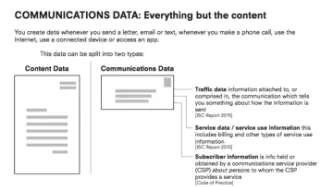Victory! UK Surveillance Tribunal Finds GCHQ-NSA Intelligence Sharing Unlawful

Privacy International, Bytes for All and other human rights groups are celebrating a major victory against the Five Eyes today as the UK surveillance tribunal rules that GCHQ acted unlawfully in accessing millions of private communications collected by the NSA up until December 2014.
Today’s judgement represents a monumental leap forward in efforts to make intelligence agencies such as GCHQ and NSA accountable to the millions of individuals whose privacy they have violated.
The case was only possible thanks to NSA whistleblower Edward Snowden whose leaked documents provided the facts needed to challenge the long-standing intelligence sharing relationship. His greatest fear was that "nothing would change." Today's success vindicates his admirable acts and shows the power of public scrutiny and transparency of State power.
Numbers Game
The receipt of unanalysed intercepted material from partners like NSA makes up a huge percentage of the raw data that GCHQ crunches through.
Through their secret intelligence sharing relationship with the NSA, GCHQ has had intermittently unrestricted access to PRISM - NSA's means of directly accessing data and content handled by some of the world’s largest Internet companies, including Microsoft, Yahoo, Google, Facebook, PalTalk, AOL, Skype, YouTube and Apple.
GCHQ also has had access to the NSA’s mass surveillance programme UPSTREAM, that exploits the US geographical position as the internet and telecommunications switching center for the world and involves the interception of fibre optic cables running through the country. Other programmes part of UPSTREAM to which GCHQ has had access include CO-TRAVELLER, which collects five billion locational records a day, and DISHFIRE which harvests 194 million text messages daily. The top five programmes within UPSTREAM created 160 billion interception records in one month alone.
GCHQ’s access to NSA material therefore makes up the large bulk of all surveillance material handled by the security services; some ex- GCHQ staffers estimated that “95 per cent of all SIGINT [signals intelligence material] handled at GCHQ is American”. Indeed, in his witness statement to the Investigatory Powers Tribunal in May 2014, Charles Farr attested that
“The immense value of [GCHQ’s relationships with the NSA] for the UK in part reflects the fact that the US intelligence agencies are far larger and much better resourced than the Intelligence Services… In simple terms, the US can provide the UK with intelligence that the UK with its far more limited resources could not realistically obtain by itself.”
Historical Illegality
But this has been going on for far longer than PRISM has been in existence. For more than 60 years GCHQ has been recieving raw intercept from NSA. Indeed, the original 1946 Five Eyes agreement (the UKUSA agreement) stipulates that "all raw traffic shall continue to be exchanged except in cases where one or the other party agrees to forgo its copy.”
The details of the modern day UKUSA arrangement remain secret, despite legal attempts to obtain them, including FOI requests in all Five Eyes countries and an ongoing legal challenge from Privacy International in the European Court of Human Rights.
However, significant quantities of intelligence material are almost certainly being shared between the parties. Indeed, in an essay by an ex-NSA employee marked UNCLASSIFIED and approved for public release by the NSA's office of Pre-Publication Review it was confirmed that:
"If you are a citizen of the UK, Canada, New Zealand, or Australia, you may also be glad, because everything the NSA collects is by default shared with your government.”
The extraordinary implications of today's judgement is that all historical sharing of raw intelligence between NSA and GCHQ took place without an adequate legal framework, and thus was unlawful.
The Fight Continues
The UK surveillance tribunal agreed with Privacy International that intelligence sharing between the United States and the United Kingdom was unlawful prior to December 2014, because the rules governing the UK’s access to the NSA’s PRISM and UPSTREAM programmes were secret.
But the fight has to continue at the European Court of Human Rights. In the coming weeks Privacy International will appeal the tribunal's earlier decision that GCHQ’s access to NSA data was lawful from December 2014 onward because secret policies governing the US-UK intelligence relationship were made public during Privacy International’s case against the security services.
It does not need to be this way. Our intelligence agencies do not need to be run relying on secret interpretations of secret laws. With independent reviews of RIPA already underway we hope this success encourages the call for root and branch reform, to bring our intelligence agencies under the rule of law once and for all.



